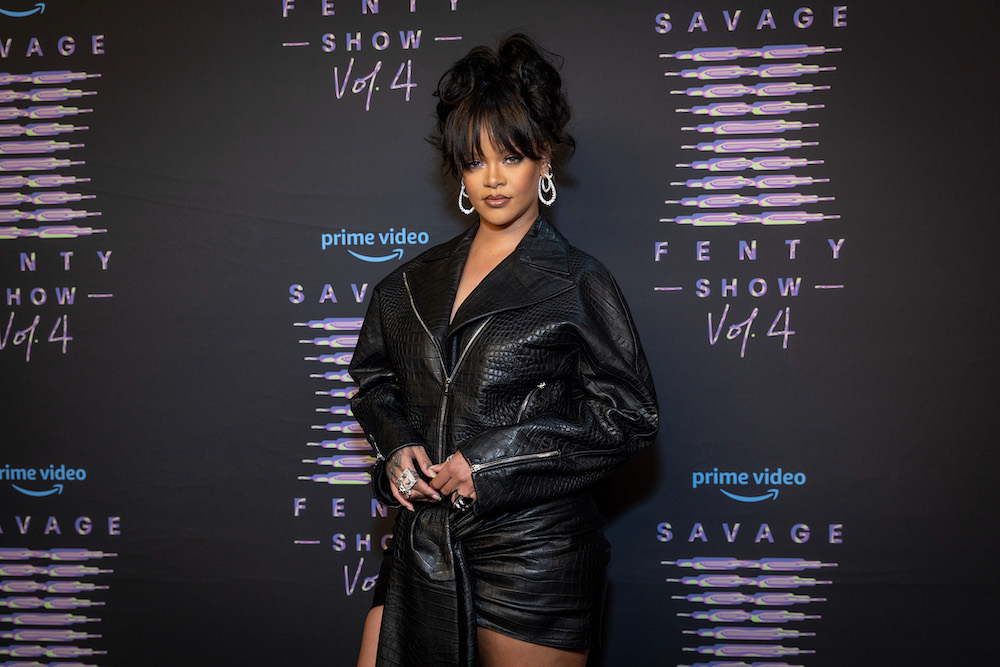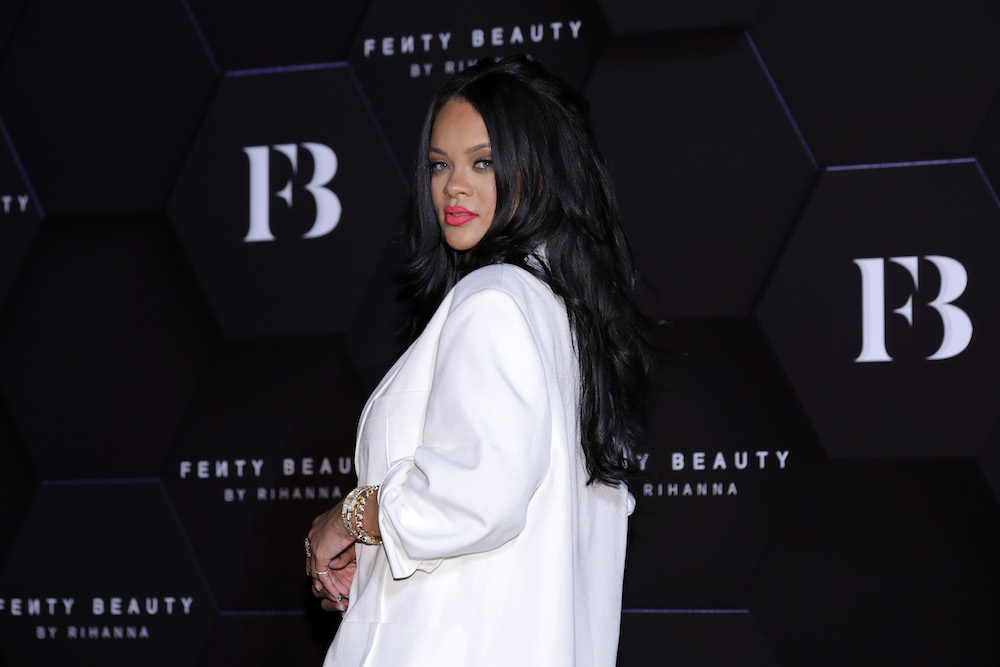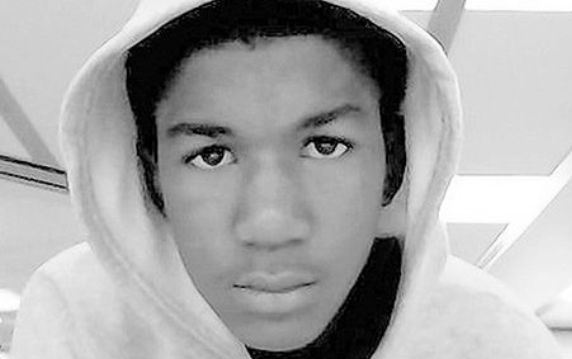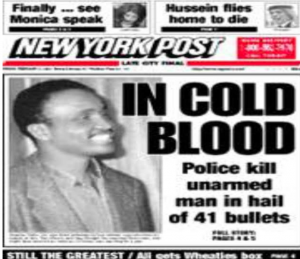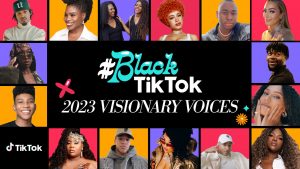
At the 65th annual Grammy Awards ceremony, hip-hop celebrated a major milestone: its 50th birthday. To commemorate the occasion, the genre’s pioneer acts, as well as some of today’s rising talents, took the stage of the Grammys for a tribute performance honoring the cultural phenomenon. With a diverse range (or so they tried) of ages, geographic regions, and gender expressions showcased on stage, from the outside looking in, you’d think that hip-hop is a warm, welcoming environment. This couldn’t be any further from the truth, especially as it relates to Black women both in front of and behind the microphone.
Although legendary hip-hop group Salt-N-Pepa, multifaceted talent Queen Latifah, the evening’s Global Icon Award recipient Missy Elliott, and newbie on the block GloRilla delivered a stellar performance, it has been a fight for them and other talented women like them to gain the respect of their male counterparts and predominately male fan base. Whether it comes to being deliberately left out of the conversation (i.e. the late Gangsta Boo being left out of the in-memoriam portion of the Grammys), being harshly criticized for the music’s subject matter (i.e. the Latto and p*ssy rap debate), or the public’s treatment of Megan Thee Stallion during Tory Lanez’ trial for assaulting her — hip-hop still has a misogyny problem.
In her memoir, Her Word Is Bond: Navigating Hip Hop And Relationships In A Culture Of Misogyny, veteran rapper Psalm One provides an unfiltered account of what it is truly like finding your way through the industry as a Black queer woman and all the nuance that comes along with these intersections.
Back in 2015, after your interview with City Pages detailing what you had faced at your former record label (Rhymesayers), you were called everything but a child of God, which you address in the book. Did that play a part in any hesitation you might have had when it came to releasing the memoir?
Being in the court of public opinion for something that happened to me, I felt neglected. It was harmful, and it was really hurtful. I then understand why a lot of women, in particular, disappeared from hip-hop. In 2019, when I started writing the book, you know, I was writing it in sort of like a loose chronological order of my life. So I wasn’t even at those chapters yet. And by the time we started editing those chapters in 2020, my former label got called out again, and it had nothing to do with me. It was bigger than me. It was bigger than my story, but it encapsulated everything that I had dealt with. But because of what happened in 2020 and the boycott, I was like, this is absolutely the time.
So there’s one quote in the book that hit me deeply. You wrote, “It was absolutely heartbreaking to find out that I had tours on the table that my label ignored. It always felt like they didn’t want me to win. They just wanted to say they had a woman on the label so they could look progressive.” We see this not only in your case, we see this even with Megan Thee Stallion’s ongoing battle with 1501 Entertainment. What cautionary tales, advice, or suggestions do you have for these upcoming women rappers that are looking to be validated in those male spaces?
The validation comes with so many caveats. You just never know until you know who really messes with you. I believed these men telling me, ‘Oh, you’re cool and all, but you ain’t like this, or you need to compete with Jean Grae,’ and I could never compete. How am I going to compete with Jean Grae? You’re not giving me any support. Where’s the budget? How could I ever compete with her? And I can’t compete with her, even with a budget. Let me just say that because Jean Grae is like ‘mom’ to me. So it’s like my rap mom. So, like, seriously, it was like sh*t like that made me so confused about what my purpose was. And I wasn’t really given the space to grow as an artist as much as other artists on that label. It makes you feel isolated. It makes you feel like, “Damn, I got to do something extra.” So it is very difficult for a woman to thrive in this space because it was built on a male fantasy. It was built on a straight male fantasy, and it was never built for women to thrive.
In the book, you also mentioned that you found, maybe not directly, but certainly indirectly, that you needed to take full ownership of the business side of your particular art when looking at the success of Nicki Minaj. So did her trajectory have any influence on you on what you wanted to do in terms of, like, the business side?
I think that with Nicki Minaj, I just saw her being supported in a way by her label that I had never seen before, and I just felt like I was jealous. Let’s just call it what it is. It’s jealous. When you look at someone else and say, ‘Why not me?’ That’s just jealousy. And I think that’s something that a lot of artists don’t like to do, especially rappers. I’m not bothered. I’ll never be pressed, I’m never jealous. A lot of artists only move out of that. They move out of jealousy and competition, and it’s upsetting and devastating to many people’s trajectory because they’re chasing.
Once I realized I couldn’t chase Nicki Minaj, it added perspective. But the support that she received, at least the way it looked when she first came out with Wayne, Ye, and Diddy and all these really big people embracing her and saying, “No, you’re the one,” that, to me, was something that I never experienced. And it was something that I thought was great, and it was something that I had wanted for a long time. Now it’s just about not waiting on people because look at Nicki Minaj today. Look at what happened to her last year. It’s a wild thing because I’m like, “If that’s the pinnacle of female rap, if that’s the biggest woman on the scene, and this is what she’s doing, why am I aspiring for this?”
So, in the beginning, we talked about the boycott against your former label, and then to follow that up, the opening line of your Medium article, “I am ready to forgive them.” Have you forgiven them yet? And what does forgiveness look like for you?
Forgiveness is a journey. It is not a destination. It is something that I am very good at some days, and other days I’m not. And also, let’s never forget the saying, “forgive, don’t forget.” It was very important for me to forgive myself and to forgive my former label for everything because that was the only way I was going to be able to move through it. The “Me Too” movement is still a movement. No matter what Amber Heard does in court, no matter what Tory Lanez does in jail, whatever it is, it’s still going to be an issue. It’s something that plagues many artists. It doesn’t matter if you’re a woman or not because, honestly, in the professional abuse that I endured, I had men in my DMs telling me they [experienced] the same thing as me, minus the sexual stuff. You can’t expect people to just be good to you if they weren’t good to people. And I think a lot of labels will “fam” you up, but this is a job. But for me, forgiveness does not mean forgetting. And forgiveness doesn’t mean I shut up.
So what’s next for you in your career overall?
I’m working on a lot of collaboration this year as far as, like, getting my voice on other people’s raps. I have a deluxe version of my last album on the way. My follow-up project is done. I just got the cover art for it. We’re just mixing and mastering, working on a couple of other projects. My partner Angelina has a bunch of projects that we’re trying to get out for her this year. I write music reviews and concert previews for the Chicago Reader, which is a trip because I used to always want to be in the Reader for my work. And now, I’m in the Reader not only for my work but also for reviewing other people’s work, which has allowed me not to be a bitter rapper. So you’re going to see my pen in a lot of different ways, not just rapping.
Psalm One’s book Her Word Is Bond: Navigating Hip Hop and Relationships in a Culture of Misogyny is available where all books are sold. To purchase a physical or digital copy, click here.
Some artists covered here are Warner Music artists. Uproxx is an independent subsidiary of Warner Music Group.



